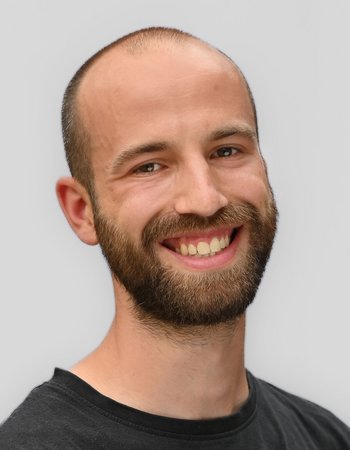
Ole Goltermann
Doctoral Candidate (cohort representative)
Academic education
since 2021 Doctoral candidate, Max Planck School of Cognition, Leipzig, Germany
Doctoral research performed at University Medical Center Hamburg-Eppendorf
Betreuer: Christian Büchel
Lab rotations in the orientation phase: Veronica Witte & Arno Villringer, Simon E. Fisher, and Christian Büchel
2019–2021 Master of Science in Psychology (Mind & Brain track), University of Vienna, Austria
2015–2018 Bachelor of Science in Psychology, University of Vienna, Austria
2012–2015 Bachelor of Arts in Business Administration & Dual Study Programme at Robert Bosch GmbH in Germany (Hanover, Stuttgart, & Hildesheim) & Malaysia (Penang)
Research experience
2020–2021 Research collaboration, Department of Social Psychology (Prof. Andreas Mojzisch & Dr. Markus Germar), University of Hildesheim, Germany
2019–2020 Research internship, Emotion, and Methods in Psychology (Prof. Ulrich Ansorge), Department of Cognition, University of Vienna, Austria
2018–2019 Research internship, Department of Sustainability, Governance & Methods (Prof. Ivo Ponocny), Modul University Vienna, Austria
2017–2021 Research assistance, Department of Social Psychology (Prof. Arnd Florack), University of Vienna, Austria
Teaching
2019–2021 Statistical advice on personal website: Free (Donation-based, Sea-Watch e.V.) statistical and methodological advice for bachelor and master theses in psychology
2018–2021 Teaching assistant, Department of Social Psychology, University of Vienna, Austria
2017–2018 Student Advisor, Faculty of Psychology, University of Vienna, Austria
Scholarships
2016–2020 Merit-based Scholarship Grant of the Austrian Government
2017–2020 Merit-based Scholarship Grant for Disabled Students, University of Vienna, Austria
Publications
Goltermann, O., Spisak, T., & Büchel, C. (2025). Concern about predictive performance of a pain sensitivity biomarker. JAMA Neurology. Advance online publication. https://doi.org/10.1001/jamaneurol.2025.2351
Hofmann, S. M.*, Goltermann, O.*, Scherf, N., Müller, K. R., Loeffler, M., Villringer, A., Gaebler, M., Witte, A. V., Beyer, F. (2025). The utility of explainable AI for MRI analysis: Relating model predictions to neuroimaging features of the aging brain Imaging Neuroscience, 3: imag_a_00497. https://doi.org/10.1162/imag_a_00497
Goltermann, O.*, Alagoez, G.*, Molz, B., & Fisher, S. E. (2024). Neuroimaging genomics as a window into the evolution of human sulcal organization. Cereb Cortex, 34, bhae078. https://doi.org/10.1093/cercor/bhae078
Goltermann, O., & Büchel, C. (2023). Improving fMRI-based prediction of individual pain ratings by accounting for interindividual variance. bioRxiv, 2023-07. https://www.biorxiv.org/content/10.1101/2023.07.06.548050v1
Hofmann, S. M., Beyer, F., Lapuschkin, S., Goltermann, O., Loeffler, M., Müller, K. R., Villringer, A., Samek, W., & Witte, A. V. (2022). Towards the interpretability of deep learning models for multi-modal neuroimaging: Finding structural changes of the ageing brain. NeuroImage, 261, 119504. https://doi.org/10.1016/j.neuroimage.2022.119504
Hofmann, S. M., Beyer, F., Lapuschkin, S., Goltermann, O., Loeffler, M., Müller, K. R., Villringer, A., Samek, W., & Witte, A. V. (2022). Towards the interpretability of deep learning models for multi-modal neuroimaging: Finding structural changes of the ageing brain. bioRxiv, 2021-06. https://doi.org/10.1101/2021.06.25.449906
Büsel, C., Sachse, P., Goltermann, O., & Ansorge, U. (2020). Sense and sensitivity – Using spatial response-compatibility effects to investigate ambiguous word meaning: The case of the German particle Ab. Experimental Psychology, 67(6), 327. https://doi.org/10.1027/1618-3169/a000500
Poster presentations and talks
Goltermann, O., Büchel, C. (2025, April). The mismatch hypothesis for chronic pain – insights from ancient, comparative and neuroimaging genomics [Poster]. 14th EFIC 2025, European Pain Federation, Lyon, France.
Goltermann, O., Büchel, C. (2024, August). Reduction of inter-individual variance in fMRI improves the prediction of individual pain ratings [Poster]. 18th IASP 2024 World Congress of Pain, Amsterdam, Netherlands.
Goltermann, O., Büchel, C. (2024, June). Reduction of inter-individual variance in fMRI improves the prediction of individual pain ratings [Poster]. 49th Annual Conference “Psychologie & Gehirn”, Hamburg, Germany.
Goltermann, O.*, Hofmann, S. M.*, Villringer, A., Witte, A. V., & Beyer, F. (2023, July). Gray matter morphometric changes drive whole-brain deep learning based brain-age predictions [Poster]. Organization for Human Brain Mapping (OHBM) Annual Meeting 2023, Montreal, Canada.
Goltermann, O., Horing, B., Finsterbusch, J., Büchel, C. (2023, June). A laminar signature for pain in the human insular cortex [Poster]. 48th Annual Conference “Psychologie & Gehirn”, Tübingen, Germany.
Bayramova, R.*, Goltermann, O.*, Enk, L., Hinrichs, M. A. B., Kamp, F., Serio, B., & Hofmann, S. (2022, August/September). Explainable AI for higher cognitive functions: How to provide explanations in the face of increasing complexity [Talk]. 22nd Conference of the European Society for Cognitive Psychology, Lille, France.
Goltermann, O.*, Bayramova, R.* (2022, July). Explainable AI for modelling cognition [Talk]. Cognitive Computational Neuroscience Unification Trial, Max Planck Institute for Human Cognitive and Brain Sciences, Leipzig, Germany.
Goltermann O.*, Bayramova, R.*, Enk, L., Hinrichs, M. A. B., Kamp, F., Serio, B., & Hofmann, S. (2022, July). Explainable AI for higher cognitive functions: How to provide explanations in the face of increasing complexity [Flash talk]. Neuromatch academy, online.
Goltermann, O.*, Hofmann, S. M.*, Villringer, A., Witte, A. V., & Beyer, F. (2022, July). Deep neural networks interpret white matter lesions as a signature of higher-brain-age [Poster]. Organization for Human Brain Mapping (OHBM) Annual Meeting 2022, Glasgow, Scotland.
Goltermann, O.*, Hofmann, S. M.*, Villringer, A., Witte, A. V., & Beyer, F. (2022, June). Deep neural networks interpret white matter lesions as a signature of higher-brain-age [Poster]. 11th International Max Planck Research School on Neuroscience of Communication (IMPRS NeuroCom) Summer School, Leipzig, Germany.
Goltermann, O. (2020, February). Computational modelling of social learning and social influence using ML algorithms of reinforcement learning [Talk]. Colloquium Series for Social Psychology, University of Hildesheim, Germany.
* shared first authorship